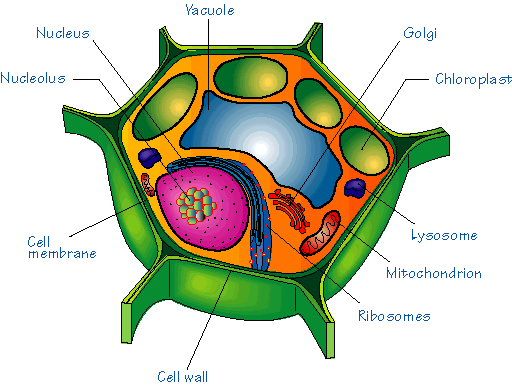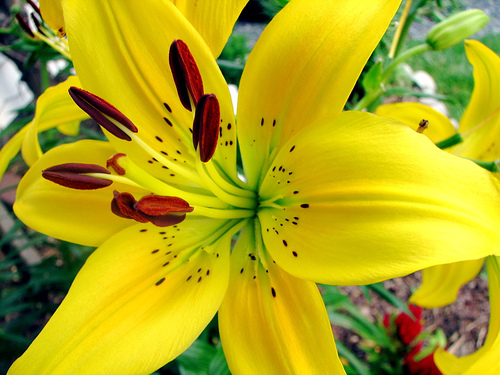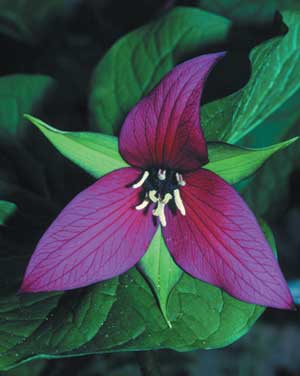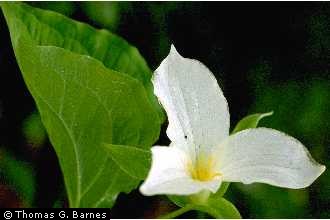Classification
Domain- Eukarea
Kingdom- Plantae
Phylum- Anthophyta
Class- Liliopsida
Order- Liliales
Family- Liliaceae
Genus- Trillium
Species- Trillium grandiflorum
Domain-Eukarea: Members have a true nucleus, cytoskeleton, and other membrane bound organelles. The nucleus contains the DNA of the cell within a double membrane.
 Kingdom-Plantae: Members are autotrophic (photoautotrophic)
meaning it gets it's energy from the sun. Cells within the
organism have cell walls made out of cellulose and many contain
chloroplasts containing chlorophyll. In addition they use alternation of generations as
their reproductive cycle.
Kingdom-Plantae: Members are autotrophic (photoautotrophic)
meaning it gets it's energy from the sun. Cells within the
organism have cell walls made out of cellulose and many contain
chloroplasts containing chlorophyll. In addition they use alternation of generations as
their reproductive cycle.
Phylum-Anthopyta: Members are an angiosperms, they have a sporophyte as dominant part of life cyle, covered seeds, and produce a true fruit.
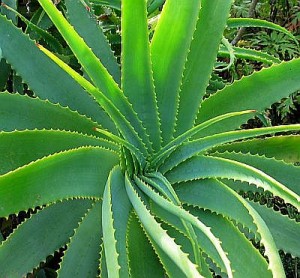 Class-Liliopsida: contains nearly 60,000 species
of angiosperms including
aloe vera,
calla lily,
moth orchid,
barley and the
banana. Members are monocots meaning they have a single embryonic leaf also called a cotyledon
in the seed, veins in the leaves usually running parallel, and
flower parts usually in multiples of three.
Class-Liliopsida: contains nearly 60,000 species
of angiosperms including
aloe vera,
calla lily,
moth orchid,
barley and the
banana. Members are monocots meaning they have a single embryonic leaf also called a cotyledon
in the seed, veins in the leaves usually running parallel, and
flower parts usually in multiples of three.
Order-Liliales: Members are mostly perennial plants with storage underground.
Family-Liliaceae: contains almost 280 genera and 4,000 species. Members are perennial and have underground storage in the form of bulbs or rhisomes.
Genus-Trillium: Members have bisexual flowers, fruit in from of a berry, and leaves that are in whorls around stem.
Species-Trillium grandiflorum: Only one member that has a singular, large, white, flower erect on top of stem.
The scientific name Trillium grandiflorum can be broken up to form an English meaning. Trillium- Tri meaning three in reference to the flower parts in threes; three petals, three sepals, three leaves per whorl around the stem. grandiflorum- grand meaning large or the largest and florum meaning flower; in reference to this species having the largest flower of all of the flowers in the trillium genus.
Back to Interactions and Adaptations - Continue to Phylogeny

